SAHARA Group expands GO RECYCLE Hubs to boost environmental sustainability
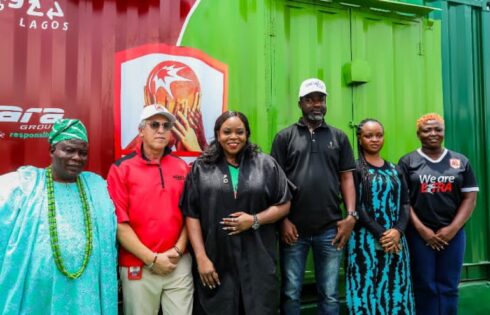
Picture: L-R: High Chief Mustapha Lasisi, Baale of Ipakan Community, Ijede, Mokhtar Bounour, CEO of Egbin Power Plc, Chidilim Menakaya, Director, Sahara Group Foundation, Hon. Kabir Femi Kareem, Vice Chairman, Ijede LCDA, Kehinde Basirat, Leader of the Legislative Arm, Ijede LCDA, Folashade Adebanjo, Programs Manager, Sahara Group Foundation.
Sahara Group Foundation, the corporate social impact vehicle of Sahara Group, has commissioned its 15th Sahara Go Recycling hub in Ijede, Ikorodu Local Government Area of Lagos State, further underscoring its commitment to sustainable waste management, environmental protection, and community empowerment in Nigeria.
The new hub, strategically located opposite the General Hospital in Ijede, extends the Foundation’s growing recycling campaign, building on the success of 14 hubs already established across Lagos.
The Sahara Go Recycling initiative is designed to promote a circular economy by reducing waste, fostering resource recovery, and empowering local communities with opportunities to earn income from recyclables.
Speaking at the commissioning, Chidilim Menakaya, Director, Sahara Group Foundation, said: “The launch of the Ijede Go-Recycling Hub is not just about environmental sustainability; it is about redefining value, creating opportunities for economic empowerment, and building resilient communities that can lead the charge for sustainability.
Every plastic bottle, aluminium can, or piece of paper recycled here marks a step toward a cleaner environment, stronger livelihoods, and a future where waste is transformed into wealth”, underscoring the Foundation’s vision of inspiring a ripple effect of sustainable practices across communities.
The event was attended by the Chief Executive Officer of Egbin Power Plc, executives and representatives of Sahara Group, Egbin Power Plc, and Ikeja Electric, the Vice Chairman of Ijede Local Government Development Area, and other members of the team, officials from the Ijede General Hospital, as well as other dignitaries, traditional leaders, and community members.
Mokhtar Bounour, CEO of Egbin Power Plc, remarked, “At Sahara, Egbin, Ikeja Electric, and across all our businesses, we don’t just say it, we transform it in action, making a difference and doing it from our heart to ensure that communities are empowered.
A cleaner Ijede means a healthier Ikorodu and ultimately a stronger Nigeria. This initiative has the power to enhance public health while stimulating economic empowerment for our people.”
Hon. Kabir Femi Kareem, Vice Chairman, Ijede Local Government, representing the Executive Chairman, emphasised the hub’s importance to Ijede residents, especially given its strategic location.
“The essence of this project is environmental sustainability and value creation. When we transform our waste into resources, it is a symbiosis, improving our environment, reducing greenhouse gases, and global warming. Ultimately, we are creating job opportunities and saving energy.” He implored all Ijede residents to key into the project and minimise improper waste disposal.
High Chief Mustapha Lasisi, Baale of Ipakan Community, Ijede, commended the collaboration between Sahara Group Foundation, Egbin Power Plc, Ijede LCDA, and EcoBarter, describing the hub as a vital contribution to the well-being and livelihoods of Ijede residents, especially because of the economic value it provides.
Since its inception, the Sahara Go Recycling Initiative has collected over 500 tonnes of recyclable waste and facilitated payouts exceeding ₦50 million to beneficiaries. The program has positively impacted more than 1000 households, creating alternative income streams, supporting livelihoods, and reinforcing environmental sustainability.
The new hub in Ijede was implemented in partnership with Egbin Power Plc, Ijede LCDA, and EcoBarter. It provides a convenient drop-off point for recyclable materials, including plastics, cartons, paper, and aluminium cans.
Residents are encouraged to exchange waste for incentives at the hub – joining a growing network of locations across Lagos, such as Ijora, Ikorodu, Agege, Festac, Onigbongbo, Lagos Island, Oworonshoki, Ikotun, Apapa, Igbogbo Baiyeku, Kosofe, Ifako-Ijaye, and Navy Town.
Mrs Ayodele Michael Oluwakemi, Council Manager, Ijede Local Government, called on residents to embrace the initiative, sort their waste, and turn in the recyclables to the hub in exchange for value, noting that this will contribute to a cleaner, greener Ijede.
Roseline Idehai, representing Eco Barter, added: “At Eco Barter, we believe waste is not a problem, but an opportunity. Our partnership with Sahara Group Foundation ensures this opportunity becomes a sustainable reality, empowering individuals and inspiring collective action toward a cleaner Lagos. We allow people to use their waste as currency and get value for every waste recycled”.
Mr Disu Shoyiga, Personal Assistant to the Executive Chairman, Ijede Local Government, noted the health benefits of the initiative, stating: “A cleaner environment translates directly into healthier lives. And the add-on of this project is the economic value it brings to the people. We are grateful to the Sahara Group Foundation and will ensure that the hub remains viable”.
Reiterating Sahara Group Foundation’s vision, Chidilim Menakaya added, “The Sahara Go Recycling project is creating a ripple effect across Lagos, enabling households and communities to see value in responsible waste management. Through strategic partnerships, we are amplifying impact and building sustainable ecosystems for future generations.”
“At Sahara Group Foundation, we believe in EXTRApreneurship, building sustainable ecosystems through collaborations that inspire change. With Ijede now part of our network, we are one step closer to a truly circular economy in Nigeria,” she concluded.
Sahara Group Foundation plans to expand the Go Recycling Initiative to more communities in Lagos and across Africa, reinforcing its mission of “Building Sustainable Communities through EXTRApreneurship.”
For more information on the Sahara Go Recycling Initiative and other Sahara Group Foundation programs, please visit: www.saharagroupfoundation.org

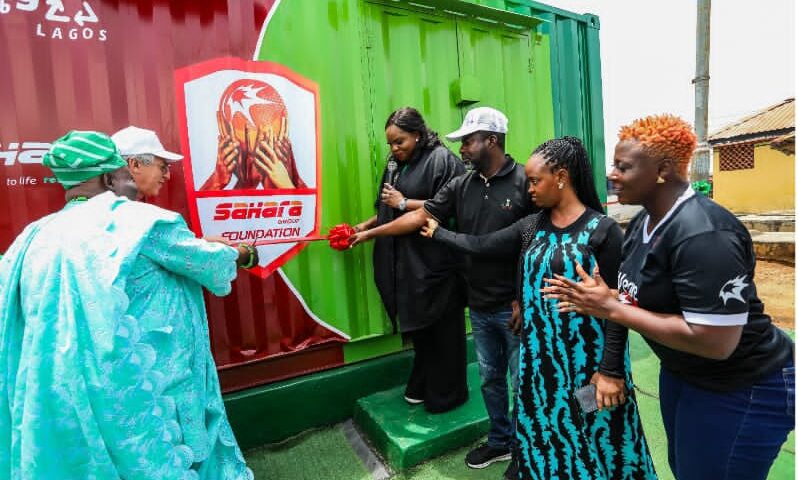


 The NNPC Limited, Sahara Group, Eroton E&P, and Bilton Energy Ltd have unveiled Nigeria’s first wholly owned 2.2-million-barrel capacity Floating Storage and Offloading vessel, designed to drive sustained oil and gas production.
The NNPC Limited, Sahara Group, Eroton E&P, and Bilton Energy Ltd have unveiled Nigeria’s first wholly owned 2.2-million-barrel capacity Floating Storage and Offloading vessel, designed to drive sustained oil and gas production.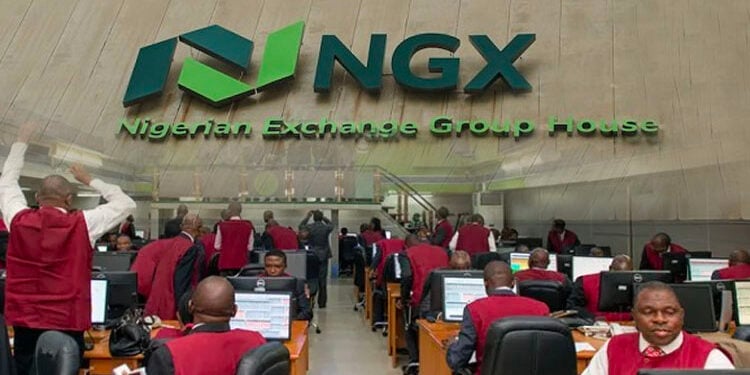
 The Nigerian Exchange maintained its bullish momentum on Wednesday as renewed investor confidence pushed the market capitalisation higher by N459bn, driven by sustained interest in banking and oil stocks.
The Nigerian Exchange maintained its bullish momentum on Wednesday as renewed investor confidence pushed the market capitalisation higher by N459bn, driven by sustained interest in banking and oil stocks.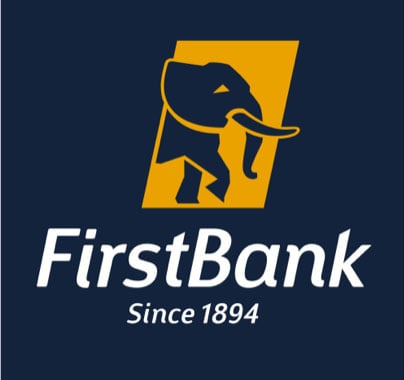
 FirstBank Group has expressed its commitment to bridging financing gaps and leveraging digital solutions to tackle business challenges across key sectors of the economy.
FirstBank Group has expressed its commitment to bridging financing gaps and leveraging digital solutions to tackle business challenges across key sectors of the economy.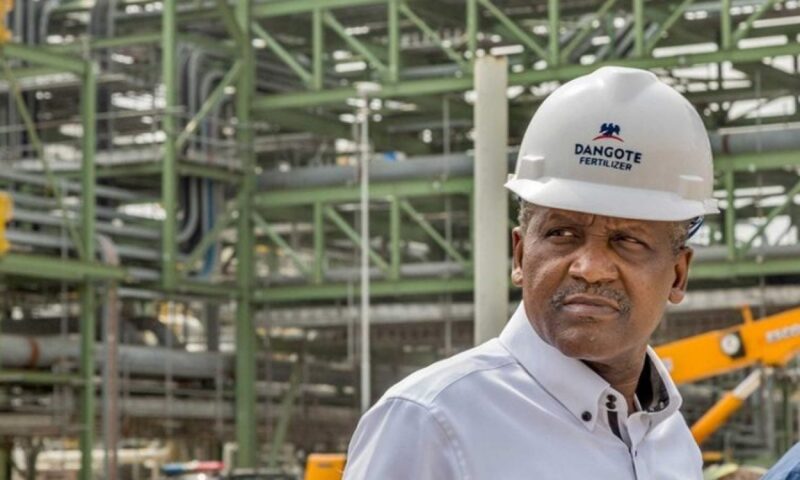
 Some of the engineers sacked by the Dangote refinery for allegedly joining the Petroleum and Natural Gas Senior Staff Association of Nigeria have decried the plan to redeploy them to sugar, cement and other business units under the Dangote Group.
Some of the engineers sacked by the Dangote refinery for allegedly joining the Petroleum and Natural Gas Senior Staff Association of Nigeria have decried the plan to redeploy them to sugar, cement and other business units under the Dangote Group.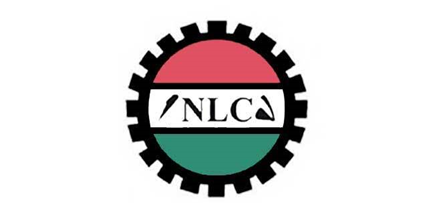
 Nigeria’s top labour union has urged the government to boost education spending and improve teacher welfare, warning that neglect of the profession threatens the country’s future.
Nigeria’s top labour union has urged the government to boost education spending and improve teacher welfare, warning that neglect of the profession threatens the country’s future.
 Air Peace Limited has issued a strong disclaimer regarding a circulating social media post advertising a supposed “30% off Africa flights” promotion.
Air Peace Limited has issued a strong disclaimer regarding a circulating social media post advertising a supposed “30% off Africa flights” promotion.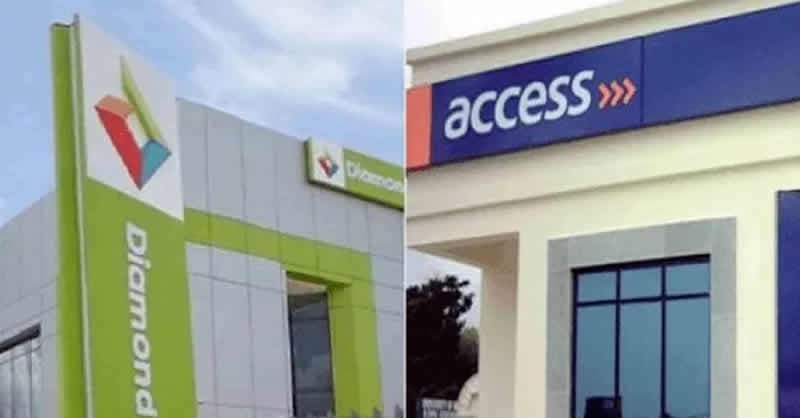
 Access Bank Plc has rewarded more than 30,947 customers with prizes worth over N6.62bn through its DiamondXtra reward scheme, as part of activities marking 17 years of the customer loyalty programme.
Access Bank Plc has rewarded more than 30,947 customers with prizes worth over N6.62bn through its DiamondXtra reward scheme, as part of activities marking 17 years of the customer loyalty programme.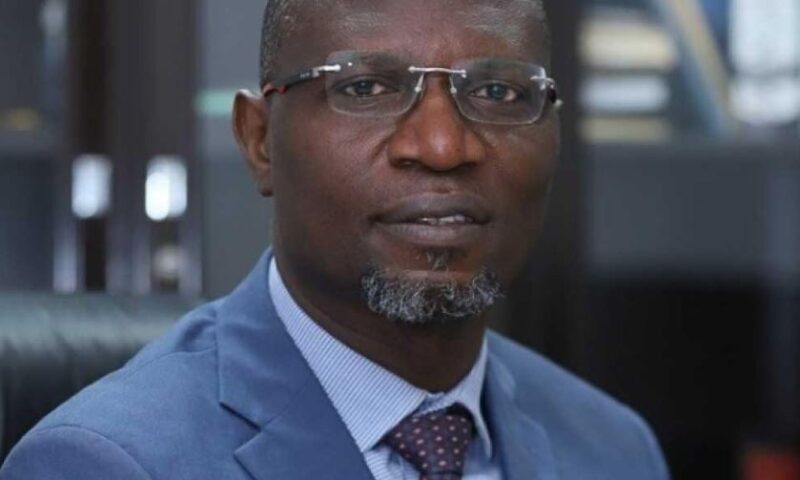
 The Securities and Exchange Commission has said Nigeria’s non-interest capital market has grown to over N1.6tn, reflecting investor confidence and participation in finance.
The Securities and Exchange Commission has said Nigeria’s non-interest capital market has grown to over N1.6tn, reflecting investor confidence and participation in finance.